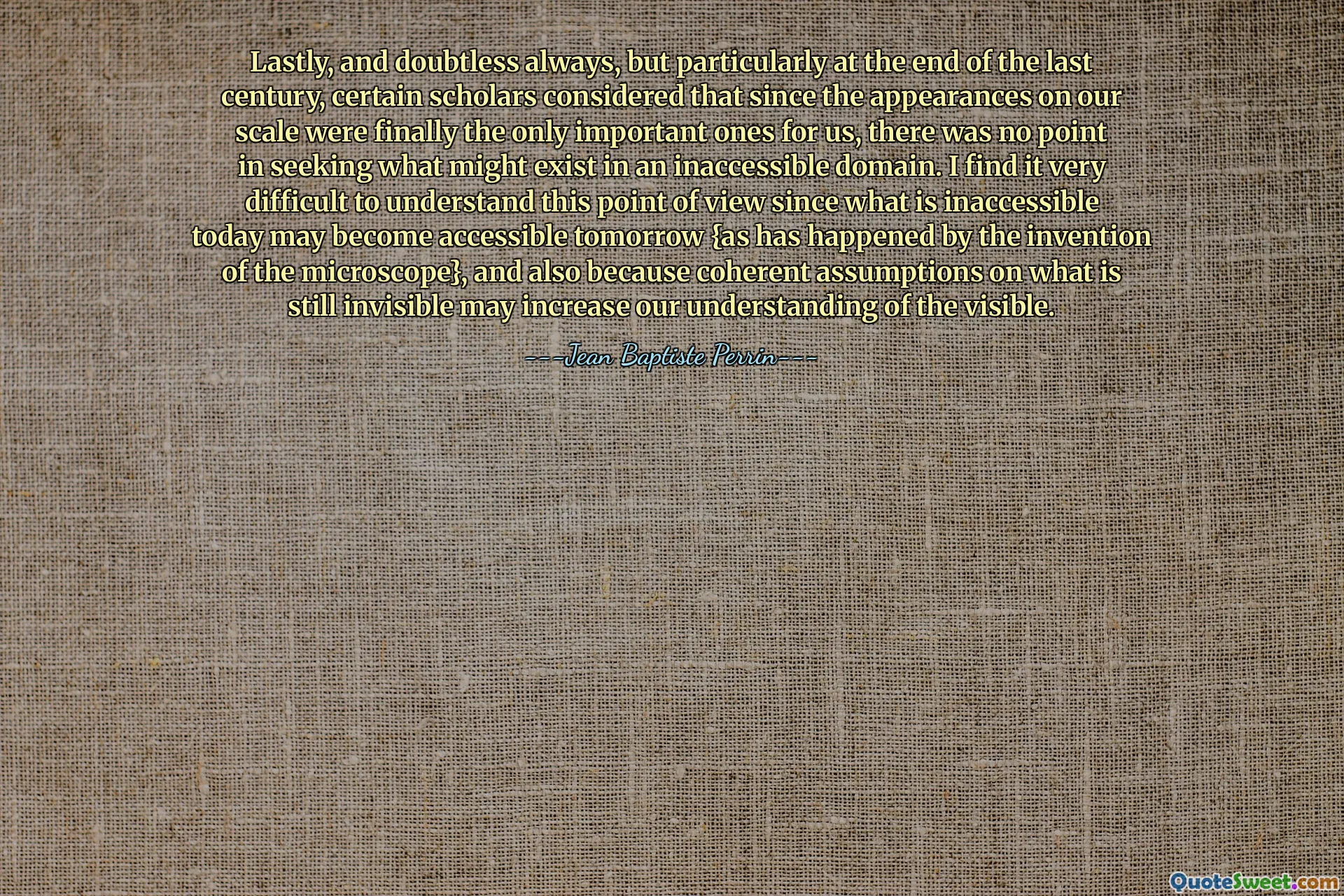
Lastly, and doubtless always, but particularly at the end of the last century, certain scholars considered that since the appearances on our scale were finally the only important ones for us, there was no point in seeking what might exist in an inaccessible domain. I find it very difficult to understand this point of view since what is inaccessible today may become accessible tomorrow {as has happened by the invention of the microscope}, and also because coherent assumptions on what is still invisible may increase our understanding of the visible.
This quote reflects on a historical perspective held by some scholars at the turn of the last century, who believed that only what could be directly observed and measured on our familiar scale held significance. Such a viewpoint, while understandable in its context, seems inherently limited, because it dismisses the possibility that regions beyond our current perception might hold valuable insights or realities waiting to be uncovered. The author highlights a crucial insight: history demonstrates that what was once considered inaccessible can subsequently become visible through scientific innovation, exemplified by the invention of the microscope. This revelation underscores the timeless importance of maintaining an open mind toward the unseen or unobserved, as advancements often challenge and expand our existing boundaries of knowledge. Furthermore, the ideas of invisible phenomena and coherence of assumptions about the unseen have profound implications in many scientific fields. For instance, understanding dark matter in astrophysics or exploring the human genome involves assumptions about realms we cannot directly observe but which nonetheless inform and advance our understanding of the tangible universe. This perspective champions scientific curiosity and humility — recognizing that our current limits are not necessarily the boundaries of possible knowledge. Embracing the invisible as a fertile ground for theoretical and experimental exploration can lead to revolutionary breakthroughs and deepen our grasp of reality, guiding us toward a more comprehensive understanding of the universe in all its complexity.






